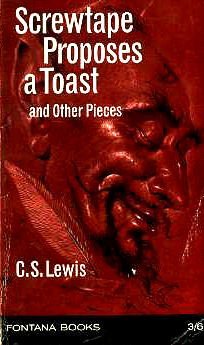What do you think?
Rate this book


224 pages, Paperback
First published January 1, 1965
What I want to fix your attention on is the vast, overall movement towards the discrediting, and finally elimination, of every kind of human excellence-moral, cultural, social, social or intellectual.
"I am certain that in passing from the scientific point of view to the theological, I have passed from dream to waking. Christian theology can fit in science, art, morality, and the sub-Christian religions. The scientific point of view can not fit in any of these things, not even science itself. I believe in Christianity as I believe the Sun has risen not only because I see it but because by it I see everything else."